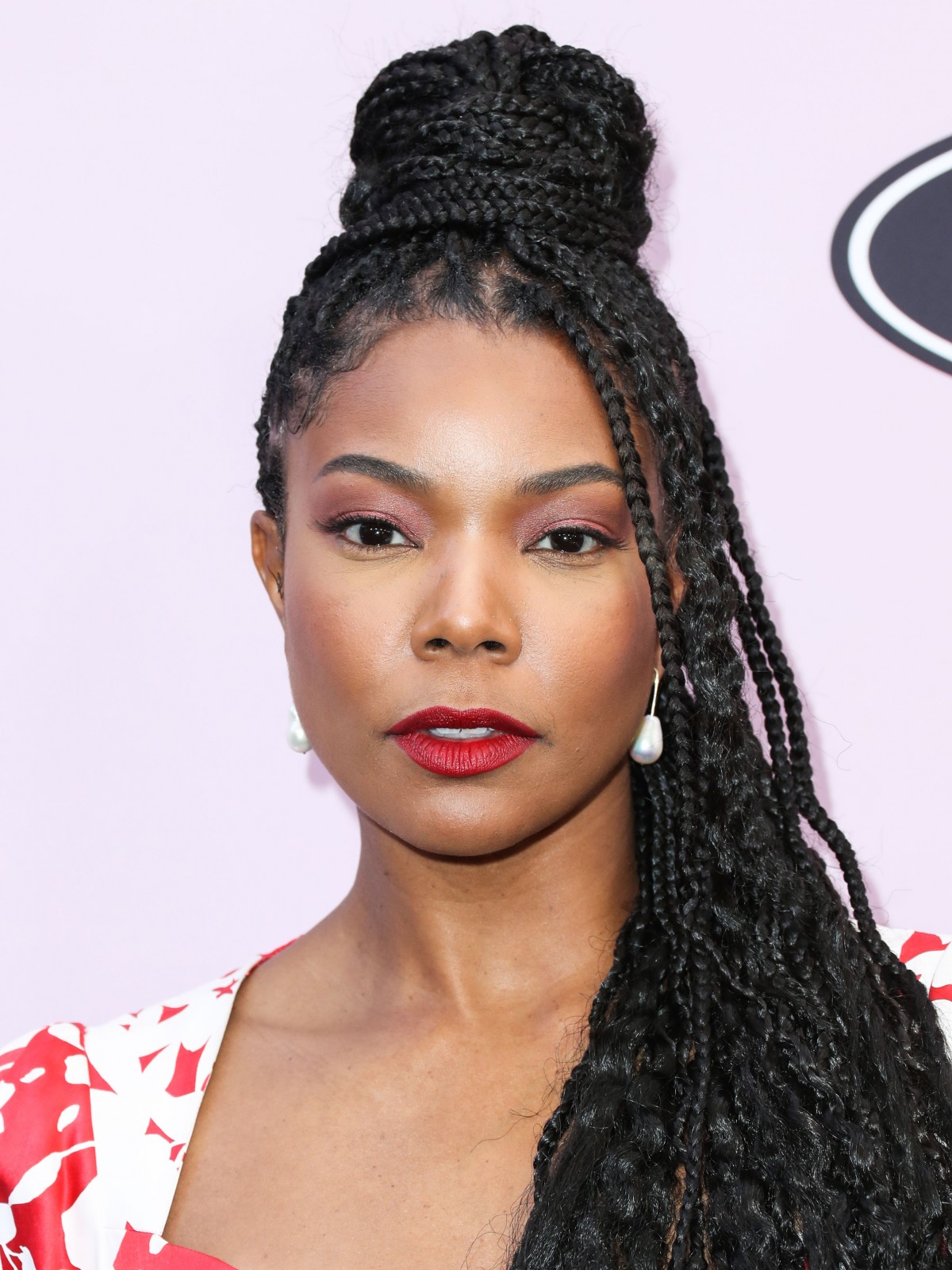
Gabrielle Union is no stranger to standing up and speaking strength to power. Last year she was the fresh face of diversity on AGT, but was subsequently fired after speaking out about the racism and sexism on set.
After seeing this tweet from Hair Love creator, Matthew Cherry, she is now using her platform to elevate another conversation, the lack of diversity in the hair and makeup team on sets.
One of these days we’re gonna have a conversation about how a lot of these progressive TV casting choices aren’t also being reflected behind the scenes in the Hair, Make up and Styling departments as well. One day tho.
— Matthew A. Cherry (@MatthewACherry) July 8, 2020
This is not a new conversation. There have been actresses complaining about how the all-white makeup and hair teams at fashion shows and on TV and movie sets are ill-equipped to assist BIPOC actresses and how they are made to feel like guinea pigs for unqualified staff.
When you are forced to allow unqualified ppl to “just let them TRYYYY” like why do I have to be the guinea pig? I love when productions say, “we want you to look like you did in this pic” and I say “Well then you will need to hire a Black stylist” 🤷🏾♀️ https://t.co/nUl4KLHSx4
— Gabrielle Union (@itsgabrielleu) July 9, 2020
When her tweet went viral, other black or dark-skinned actresses chimed in with their thoughts and experiences. South African actress Lesley-Ann Brandt who is of South Indian descent, from the series Lucifer had this to say:
This!! The amount of times I’ve had to do my own makeup or bring my own makeup to set. So to producers and creators, ensure you’re following ALL the way through, hair and makeup depts should be diverse. And let’s face it. Black hair stylists can do anyone’s hair. https://t.co/RoHNoR5miS
— 📎Lesley-Ann Brandt (@LesleyAnnBrandt) July 9, 2020
Aside from the defensiveness, some stylists flat out refuse to do the makeup or hair of BIPOC. Actress Candice Patton from CW’s The Flash states that when BIPOC actresses ask for more qualified people, they are labeled difficult or a diva.
let’s talk about that!! #hearcandicepatton pic.twitter.com/tKrETdQwMO
— ⿻ (@ungodlyiris) July 9, 2020
Many of these actresses are forced to hire their own hair and makeup team on their own dime and this is outrageous. The fact that this issue is not just confined to actresses, but remains an issue at fashion shows and shoots is also problematic. It’s not ok to hire black models or actresses to be used as props for diversity, but that diversity must be reflected in the rest of the crew, starting with hair and makeup.
Most hair and makeup schools do not train students how to do black hair and makeup which is ludicrous. This is why many white stylists are not equipped to handle these situations. It is not an excuse for their incompetence though because most black hairstylists and makeup artists I know make it a point to learn and know how to do all hair types and skin tones. Matthew Cherry echoed this when he quoted my tweet about how production companies refuse to hire BIPOC to be the heads of hair and makeup on sets. I’m now Twitter famous, ya’ll.
Black hair and make up artists usually have to know how to work with ALL DIFFERENT SKIN AND HAIR TYPES unlike the people that typically end up as department heads. https://t.co/PF2ZybTvqg
— Matthew A. Cherry (@MatthewACherry) July 9, 2020
As a former makeup artist for Mac Cosmetics, I always made it a point to make the white MUAs I worked with learn how to do makeup for black and brown skin. Whenever I was called to do make up for a black woman by a terrified white co-worker, I would make them do the work while gently guiding them. I’d tell them, I had to learn, so do you. I always carried at least 20 different foundation colors in my kit in small containers and I taught myself how to mix colors in order to create whatever I needed.
To be unqualified or refusing to learn in this day and age is unacceptable. I hope these actresses continue to speak up while the movie industry not only listens but remedy the issue. These actresses deserve it.
Photos credit: Avalon.red and via Instagram

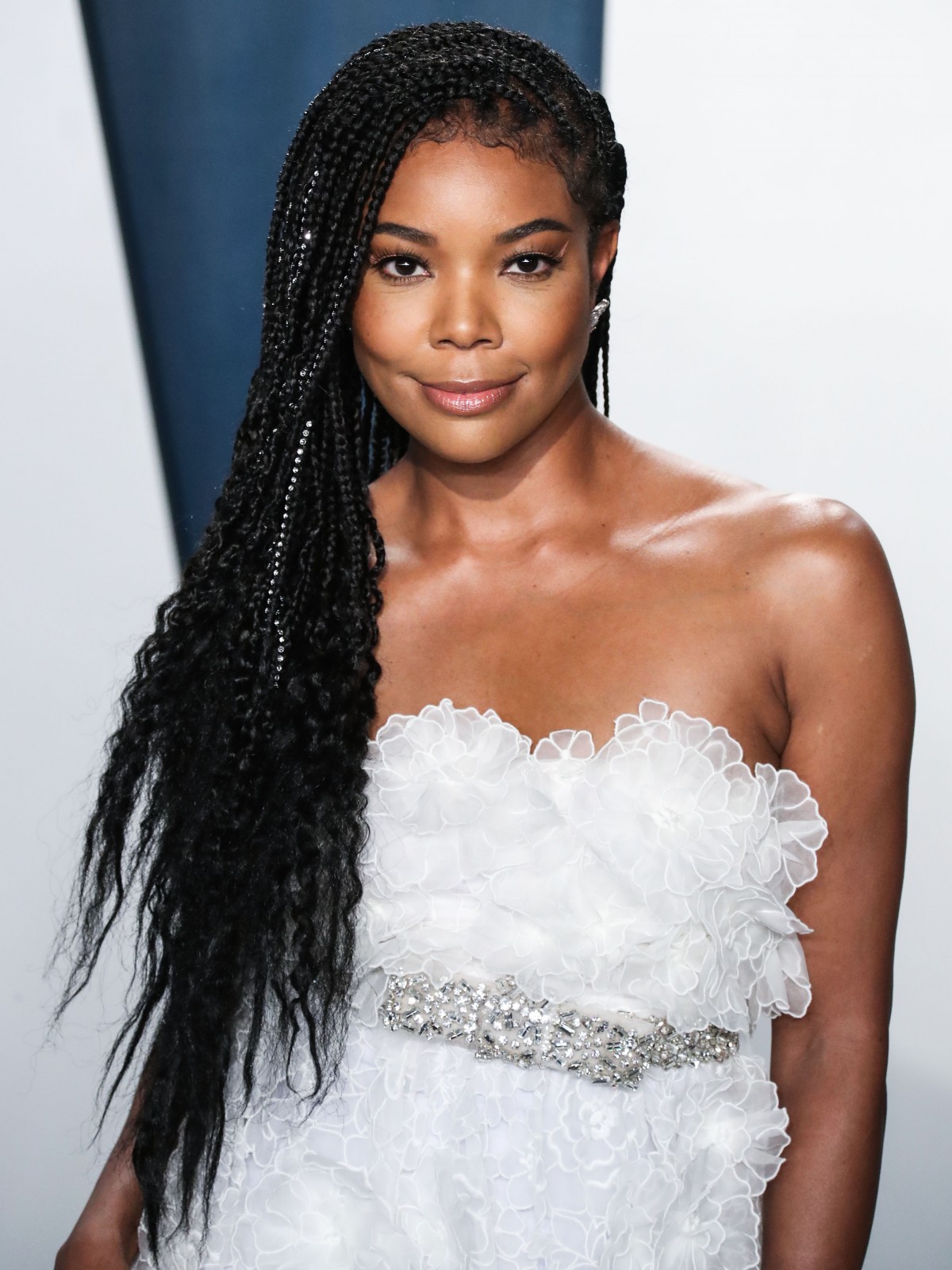
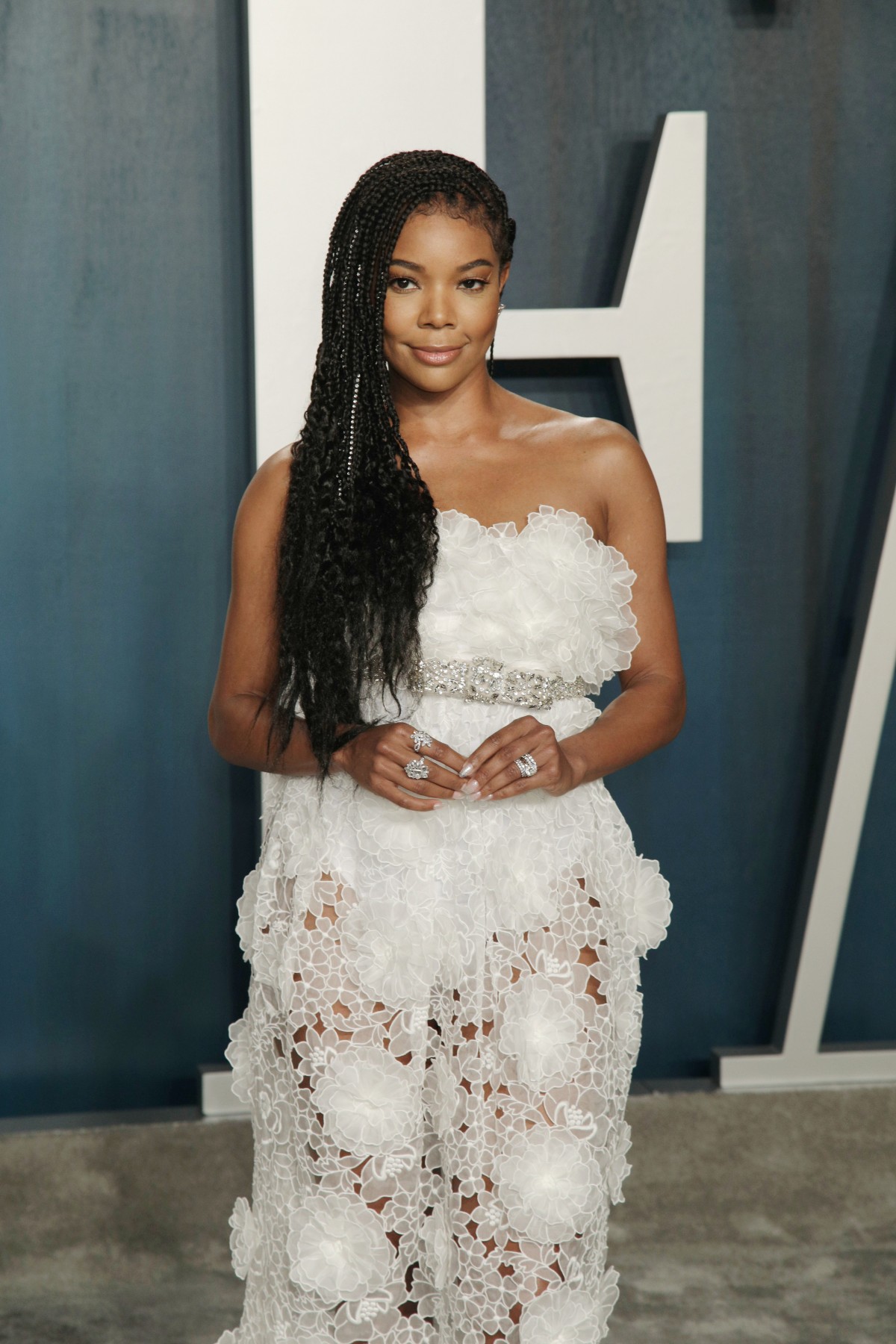
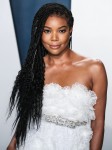
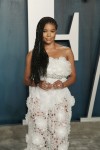
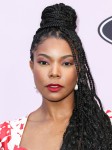










I’m not surprised to hear this, not one bit.
I briefly considered becoming a makeup artist. One of the things I did to educate myself was to study with books. Of course I got Kevyn Aucoin’s books, but I also made sure to get books focusing on POC. Books by Iman, Reggie Wells, and several others on Black and Asian makeup and looks. All filled with gorgeous color photography. I also practiced on friends with different skin tones and hair colors.
It’s not that hard if you think about it. Learn a little color theory! Seems to me that many white folks just don’t bother to learn. (Not just makeup – so very many things.) Hair is a bit more complicated than makeup, but still, there are schools that teach these things.
Professional MUAs have no excuse not to have palettes with different colors. A lot of the colors I love most look best on darker skin – I could never pull off a turquoise lip. But it looks amazing on Black women I’ve seen rocking it – not just in ads or at the club, but on the street.
Come on, white folks – educate yourselves! Make the effort!
“Come on, white folks – educate yourselves! Make the effort!”
Seriously. When it is your job, you have to take responsibility for what you know or don’t know.
Gabrielle’s make-up artist is actually a white woman, and she really knows her stuff. She has been giving a lot of tutorials on instagram recently and recommending products that work on a variety of people. It CAN be done, you just have to put in the work.
There is no excuse from production companies in 2020. But this is also what happens when there are no BIPOC on the production team, on the film sets. Hollywood’s BLM statements are just lip service until they implement real change in front and behind the camera.
This is just flat out, all day long, racism
Finally there is a place and space for BIPOC to be speak and be heard. Without fear of losing their booking or being branded as hard to work with.
There is so much racism in so many layers that it feels like we will never swim to the bottom and then rise to reach the top again.
But in that rise everyone will be lifted
We just need to speak and listen and amplify if we see others being ignored.
I do see a change but we have to be prepared for relapse and ready to fight it because it is tempting to fall back into easy patterns of oppression
Definitely a problem. Production crews in general need to be more diverse, but especially hair and makeup. And it’s amazing to me that the schools aren’t training the artists on a variety of skin tones – why limit your experience and clientele?
I did see a local MUA advertising her work recently – every single “after” photo looked the same – tarantula lashes, overdone lips, contouring to the point of looking like an alien. Creepy! I’m guessing she trained at the school of YouTube tutorials.
They’re divas for asking for a hair professional who is qualified and trained to do their hair without ruining it because they don’t understand it? Well then, I must be some kind of raging beeyotch because I insist on having a stylist who knows how to do hair color without making my hair fall out.
JFC the caucacity… imagine being so scared of melanin that you complain when someone asks for a qualified hair stylist. I just can’t, and I am beyond delighted to see this BS being called out.
For years I dreaded going to beauty/hair salons because the talk was always the same: “your hair is so hard to handle, why don’t you straighten it?”. I should have told them to learn how to style more than one type of hair but I was a shy teenager. And in my country half the population have kinky/curly hair but unless you go to a salon that specializes in curly hair, they’ll just (mis)treat your hair and blame you for it.
I remember Victoria Rowell (The Young & the Restless) spoke out on this many, many years ago (back in 2007 iirc). It’s a shame nothing has improved in all this time.
I work freelance in the Costumes Dept. and I’ve seen this happen wayyy too many times.
Sometimes i’ve seen the HMUs give false compliments to Black actors who show up with their un-styled natural hair just so they have an excuse not to touch it, then they come to my department to anxiously ask if we have any hats or toques to cover it.
There was ONE time, in the so far 10 years I’ve worked in film, one time that we had mostly an all Black cast with Black extras (we were recreating a real-life story) and sure enough I, a Black-latina, show up as a Daily, and without fail every person there on crew assumed I was a Background player and treated me as such.
When I specifically asked for directions to my department, this girl on crew rolled her eyes and directed me to Background holding (at the time I was just confused since I still didn’t know what the cast and story was we were going to shoot that day). Later when I went on set with my kit, everyone was all surprised and I got the, “Oh wow! You’re crew!? You look like you could be cast!” comment from multiple crew members several times that day (I and the 2nd AD were the only Black people on crew, sometimes I’m literally the only one). and that’s when I realized why I was treated differently before that.
Also the same day they had a white HMU artist (just one artist for an entire cast), and even though she looked confident working with Black hair textures, again we heard the fake compliments and got the request for hats etc, to cover them. For one of the actors I saw her brushing her hair (wrongly—ripping her hair out) to put it back in a bun, basically to tame it ‘cause she really didn’t know what she was doing.
Also 3 times i’ve been asked by different professional Make-up artists in this industry if I would sit for them before their next gig so they can test out different foundations on me to match the one Black actress they were going to have. I, already suspect of their assessment that we, “had the same skin tone” would always ask to see a picture of the actress they were referring to first—We have never been close to a match. Even worse, once, when I tell you the difference in skin colour between me and one of the actress was major—I’m downplaying just how much; basically the difference between Rosario Dawson and Lupita Ny’ongo—not even exaggerating one bit here. Needless to say I politely 😑 turned them down every time.
Cosmetology is a state regulated industry. I had no idea the license testing didn’t include hair for black men/women. That is nuts.
I can relate. After booking a blow dry appointment at a big name Boston salon, the stylist came at me with a straightener saying that’s the only way to get the requested effect. I was younger at the time and no stranger to salons, however I had just moved to the states. I explained what I wanted and was told by her again and again that she was experienced and a blow dry wouldn’t work with my hair texture, going so far as to make fun of the baby hair I have in the front, asking why my hair was a “weird length”in these areas and how she’s never ever seen this before, but could help conceal if I let her cut the rest of my hair. she was also pushing these hair fall treatments on me. Before then, I never really considered that professional would only be used to one type of hair and have no idea what to do with anything else.
This is a big problem for military women and dependents. Often our bases are overseas or in predominantly white towns in the US, and there are no stylists who can work on BIPOC hair. And then the service members would get in trouble for not having “tame” or “professional” looking hair, under the excuse that they can’t fit their covers or hazmat suits correctly if the hair isn’t sleek. They have finally relaxed the hair standards a bit to allow braids and hair with more bulk, but there’s still no effort to fix having available stylists. And every military base has a Salon and barbershop, so even if they can’t do anything about what’s available in the surrounding town, they can make an effort to recruit diverse stylists to work on the base.
I absolutely adore Candice as Irish west on the flash the makeup artist On the show does her dirty her foundation is always off you can tell they have no clue . On what their doing the another actress who white and Chinese makeup are fine .
I work in costumes for film so I’m a little removed from this conversation, but not new to it.
An actor can request a must-hire at the production’s expense when they work on a project, and I know several very talented BIPOC HMU/W’s who would greatly appreciate it. I think that would change the landscape, and give minority artists key positions to leverage in future jobs
Given that you must be licensed to work on hair and given that you have to maintain that license…I am shocked. But I guess I shouldn’t be. It’s another sign of my privilege that I just assumed this wouldn’t be an issue.
How do you have a license to work on hair in the USA if you’ve never trained for different textures? How do you have a license to work on hair in the USA if you are unfamiliar with treating and cutting and styling African, Asian, and Caucasian hair, at minimum?
Good for her for taking a stand. I wouldn’t want someone breaking my hair or destroying my hair color because they didn’t know how my hair worked, either.
Because everything in this country, Everything, is set up for white people. I remember Iman talking about this way back when, and she created a whole line of cosmetics starting when she had to mix her own colors and do her own makeup. What a shame but also not a surprise that 40 years later from when she began as a model, we are still having this same conversation.
Look at when Tarte released their shape tape foundation and there were only like 7 shades to pick from, compared to Fenty Beauty who released like 40 shades from the getgo.